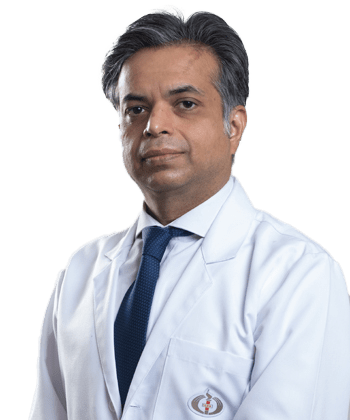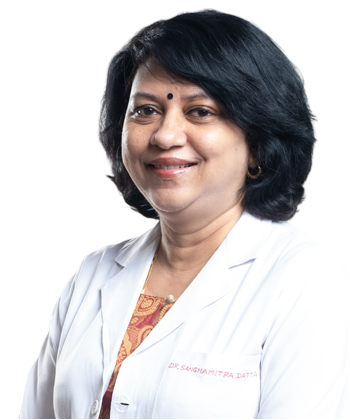The Institute of Clinical Microbiology and Immunology is committed to establishing itself as a centre of excellence by providing high-quality diagnostic, educational, training and research services. The department is seen as a trendsetter in India by embracing the latest cutting-edge technologies in the quest for early, accurate and affordable diagnoses for better clinical management of patients. This totally pro-active department traces all positive reports back to the bedside by sharing the fi ndings with the treating unit for better understanding and actionable results. This has helped us to detect rare diseases such as cryptococcal meningitis, tubercular brain abscess, disseminated nocardiosis, melioidosis, cardiac hydatidosis and systemic histoplasmosis, to name a few.
Timings
The department is situated on the 1st Floor of the Old Building and provides 24 × 7 diagnostic services.
Spectrum of services
1. Diagnostics
a. Identification and susceptibility testing of organisms using automated systems:
- MALDTI-TOF for rapid identifi cation of bacteria/fungi/mycobacteria within 5 minutes
- Automation in blood culture (BacT/Alert-3D), the fi rst in North India.
- VITEK-2 for automation in bacterial and yeast identifi cation and antimicrobial sensitivity
- Anaerobic automated system: Anaxomat Mycobacterial infections: HAIN’s Genotype MTBDR plus assay for molecular identifi cation of the Mycobacterium tuberculosis complex and its resistance to rifampicin and/or INH
- Genprobe for molecular diagnosis of TB
- Accuprobe assay and Genotype Mycobacteria CM assay for rapid species identifi cation of 16 common Mycobacteria spp. from culture.
- Automated rapid culture and 1st and 2nd-line (10 drugs) antibiotic sensitivity tests for Mycobacteria performed by the Bact/Alert-3D method.
b. Molecular testing
Syndromic diagnosis: Biofi re (Filmarray)
- Transplant-associated infections CMV quantitative PCR, EBV quantitative PCR, BK and JC qualitative PCR
- Hepatitis HCV quantitative PCR, HBV quantitative PCR, HBV, HCV and HIV qualitative PCR, HEV quantitative PCR
- Viruses causing encephalitis/aseptic meningitis/vesicular lesions/infections in the immunocompromised Herpes virus qualitative PCR, enterovirus qualitative PCR, HIV quantitative PCR, HIV qualitative PCR, JCV qualitative PCR
- Respiratory infections Adenovirus real-time qualitative PCR, infl uenza A/B and H1N1-PCR, H1N1 real-time PCR, respiratory multiplex PCR
- Respiratory panel: 20 pathogens
- Pneumonia panel: 15 bacteria with quantitation (copies/ml), 3 atypical bacteria, 9 viruses in addition to antibiotic resistance gene detection for ESBL, carbapenemases, MRSA, VRE
- Meningitis/encephalitis panel: 14 pathogens
- Gastrointestinal panel: 21 pathogens
- Blood culture identifi cation panel: 30 pathogens from positive blood culture bottle (GPCs: 9, GNBs: 14 and Candida spps.: 7) with antibiotic resistance gene detection for ESBL, Carbapenemases, MRSA, VRE
- STD Panel
- N. gonorrhoeae, M. genitalium, C. trachomatis
c. Blood bank individual donor screening with nucleic acid amplifi cation: (NAT-IDT) HIV, HBV, HCV – Procleix Ultrio Elite Assay, Grifols Diagnostic Solutions Inc. CA, USA
d. Viral Serology Automated ELISA work-station for diagnosis
- Viral hepatitis serology blood-borne and food-borne (A, B, C and E)
- HIV serology: 4th generation for both p24 antigen and HIV antibody
- Vector-borne virus serology: Dengue NS1 Ag ELFA and IgM ELISA for Dengue and Chikungunya
- TORCH serology: HSV1 and HSV2 IgM and IgG ELISA and CMV IgG and IgM, Rubella IgG and IgM, Toxoplasma IgG and IgM ELFA
- Hepatitis B profi le: HBsAg, HBeAg, anti-HBe, anti-HBs titre, anti-HBc IgM, anti-Hbc total
- Acute viral febrile illness: Measles IgG and IgM, Mumps IgG and IgM
e. Other serological tests
- 1,3-ß-D-glucan test: FDA approved panfungal biomarker used to aid in the diagnosis of most opportunistic invasive fungal infections (IFI)
- Histoplasma urinary antigen test for diagnosing histoplasmosis
- Aspergillus IgG/IgM rapid assay allowing the simultaneous detection of both IgG and IgM class anti-aspergillus antibodies asay as an aid in diagnosing chronic pulmonary aspergillosis (CPA)
- Cryptococcal meningitis, leptospirosis, cysticercosis, hydatid disease, typhoid fever, dengue fever, mycobacterial infections, amoebiasis
- ELFA (VIDAS) for C. diffi cile toxin assay
- Quantiferon TB Gold in tube assay
- Weil Felix test for typhus, IgM ELISA and a rapid antibody test for scrub typhus
- Legionella urinary antigen
- Filaria antigen test
- Slide agglutination test (SAT) for brucella antibodies and IgM ELISA for brucella
- Fecal calprotectin test
2. Quality control
External quality assurance scheme (EQAS) centre Our department has been running the IAMM-EQAS since 2014 under the aegis of the Indian Association of Medical Microbiologists. Our centre caters to the North and North-East Zone of India. Currently, we have approximately 650 laboratories enrolled with our centre.
NABL accreditation The effi ciency of the laboratory in meticulously following internationally recommended techniques, adhering to various elaborate in-built control protocols and guidelines refl ects in the accurate test results. Our laboratory has been NABL (ISO 15189:2003) accredited since 2004. It is accredited as a PT provider with NABL (ISO17043).
Participation in EQAS programmes To maintain the highest standard and monitor the quality of our reports we are enrolled with various external organizations for EQAS, e.g
- Bacteriology and serology: Christian Medical College, Vellore
- Molecular tests: Christian Medical College, Vellore
- Mycology: PGIMER, Chandigarh
- EQAS panels of viral serology: Christian Medical College, Vellore
- Blood-borne virus serology and NAT: Blood bank EQAS, Institute of Healthcare Quality Accreditation, Jaipur
3. Hospital infection control activities (HICC)
- Under the HICC, the department carries out surveillance of hospitalacquired infection (HAI). Our hospital received the HMA award from the HIC committee in 2002.
- Microbiology Newsletter: Our department has been publishing a 6-monthly newsletter for Microbiology (bacteriology and mycology, serology, molecular biology and mycobacteriology) since 1995, the fi rst of its kind in India. The data from the newsletter has also been instrumental in formulating the antibiotic policy of our hospital, which is updated from time to time.
4. Teaching
- The department has been successfully running the DNB course in Clinical Microbiology since 2003 with high pass percentage
5. Research
- Our department has a keen focus on research activities and regularly undertakes important research projects in collaboration with national and international organizations (WHO, PHFI, etc.)
- Due to the strong research culture of our department, every year there are numerous scientifi c publications in national and international journals and contribution in authoring and editing chapters in books.
Address
1st Floor, Old Building, Ext: 1150
Landline nos
Enquiry: 1151 Administration offi ce: 1150 Chairman: 1144 Doctors: 1146, 1147
 Dr. Chand Wattal
Dr. Chand Wattal
 Dr. Jaswinder Kaur Oberoi
Dr. Jaswinder Kaur Oberoi
 Dr. Neeraj Goel
Dr. Neeraj Goel
 Dr. K.J. Prasad
Dr. K.J. Prasad
 Dr. Sanghamitra Datta
Dr. Sanghamitra Datta
 Dr. Reena Raveendran
Dr. Reena Raveendran